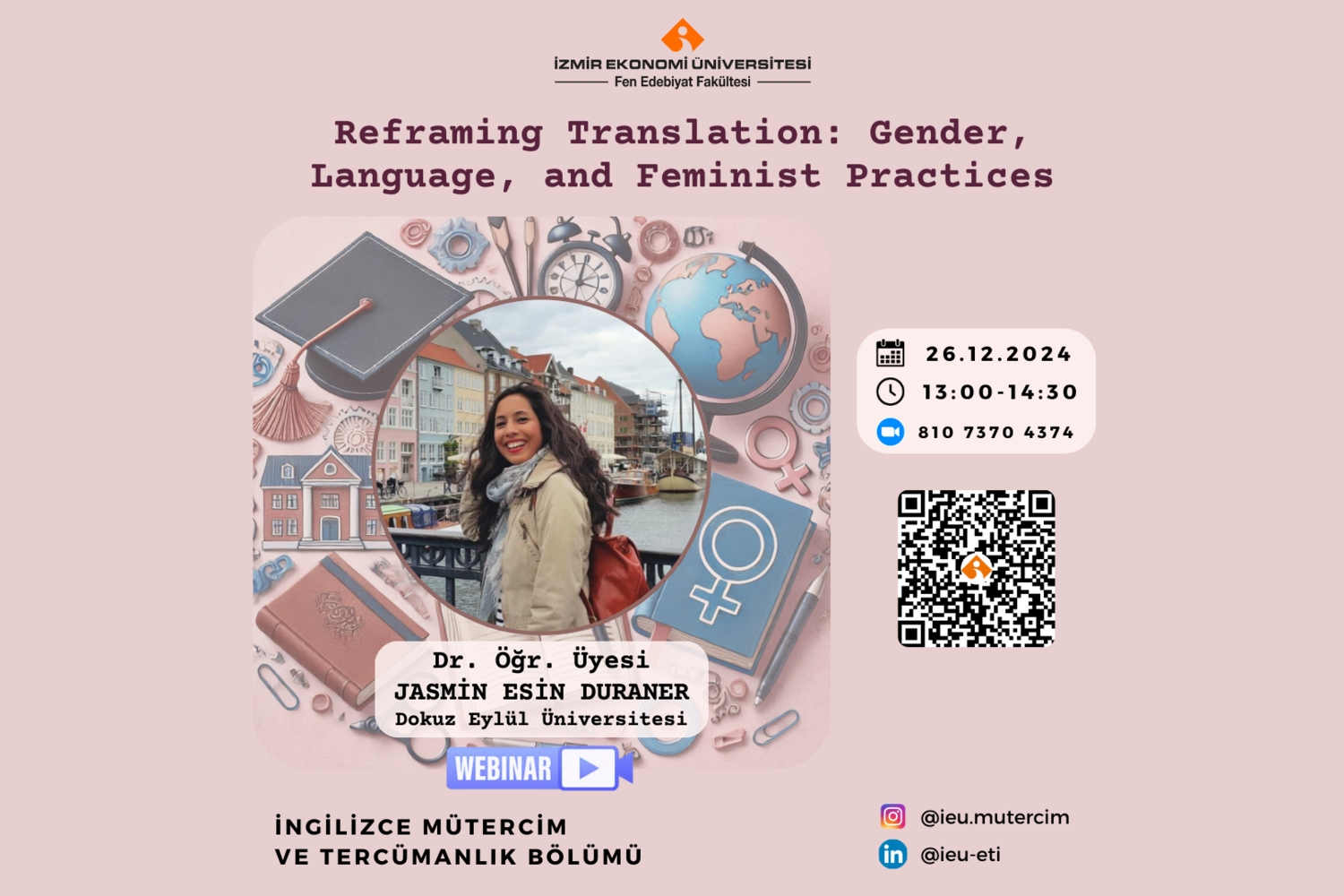
Our Graduate Onur Ege Begins Chinese Studies at Beijing's BFSU
Onur Ege Türksal, a 2025 graduate of the Department of English Translation and Interpreting at İzmir University of Economics, is ...

IUE Graduate Ezgi Su Accepted to Master’s Program at KU Leuven
Ezgi Su Duygulu, a 2024 graduate of the Department of English Translation and Interpreting at İzmir University of Economics, will ...

Our Graduate Ece Continues Her Academic Journey in Europe!
Ece Fişek, a 2025 graduate of the Department of English Translation and Interpreting at İzmir University of Economics, is taking ...

Poster Exhibition on "Cultural Elements in Retranslations" at IUE
Senior students of the Department of English Translation and Interpreting at İzmir University of Economics (IUE) held a poster exhibition ...

Assoc. Prof. Özgür Şen Bartan on Translation Quality: Revision and Post-editing
On May 20, 2025, the Department of English Translation and Interpreting at Izmir University of Economics hosted a seminar titled ...

TÜBİTAK 2209-A Research Support for English Translation and Interpreting Students!
The results of the 2024/1 term of the “2209-A Research Project Support Programme for Undergraduate Students” carried out by TÜBİTAK ...

Webinar on Gender, Language and Translation with Guest Speaker Dr. Jasmin E. Duraner Dikmen
İzmir University of Economics, Department of English Translation and Interpreting, hosted a webinar titled “Reframing Translation: Gender, Language, and Feminist ...






